Opinion
International Women’s Day: Asma Khan on why we need to ditch the ‘angry male chef’ stereotype
17 Mar 2022
7m
Picture a professional kitchen and the first thought that comes to your head may well be Gordon Ramsay slamming a chef’s head between two slices of bread, and calling them an ‘idiot sandwich’.
There are countless other similar examples of such toxic masculinity, too, from Bradley Cooper throwing plates against walls in Burnt to a sweary and progressively-more-frazzled Stephen Graham in the recently released Boiling Point.
“Television shows that promote so many displays of aggressive, abusive, bombastic chefs have a lot to answer for,” says Asma Khan, renowned cook, restaurateur and star of Netflix’s Chef’s Table. “That kind of abuse is not common, but it is celebrated, and it allows those who feel frustrated, angry, or unable to deal with stress a cover [behind which] to attack a vulnerable person… invariably a woman.”
A complete antithesis of this angry, intimidating environment, Asma runs Covent Garden’s Darjeeling Express, in which all the chefs on her team are female. They’re a sisterhood; a community, and, like her, all started with no prior culinary experience other than their memories of food prepared in India.
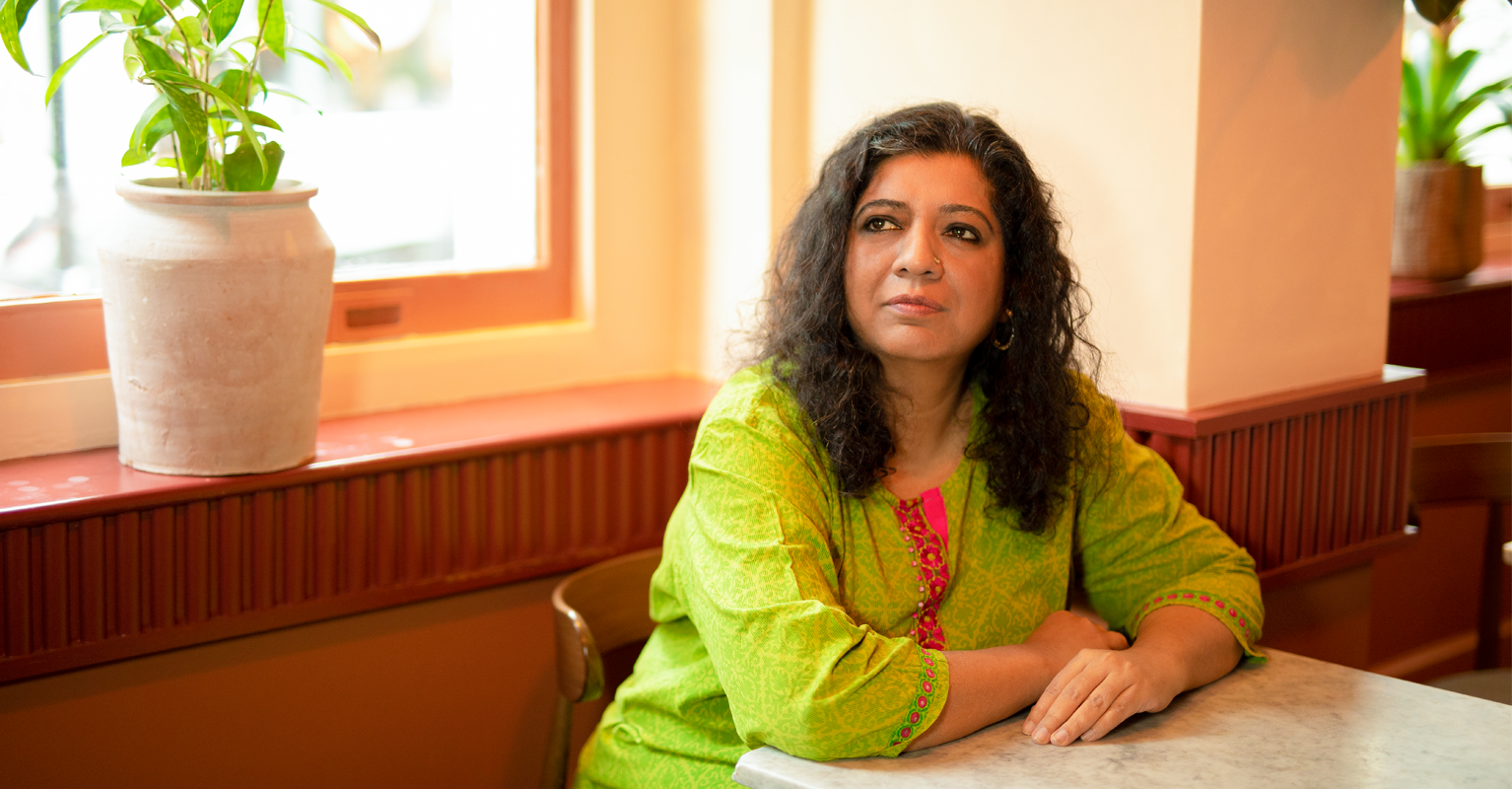 Asma Khan runs London’s Darjeeling Express (Credit: Twisted)
Asma Khan runs London’s Darjeeling Express (Credit: Twisted)
READ MORE: International Women’s Day: Meet the female street food pioneers taking the UK by storm
It’s worth noting Asma never set out to exclude men from her kitchen, rather that it happened as a consequence of looking for like minded individuals who cook like she does.
“If I found a single boy who had learnt to cook from his mother, rather than in a five star hotel, I would have hired him,” she says.
However, she does acknowledge the need for spaces in which women in particular can flourish, especially given the huge gender imbalance across the top ranks of the UK’s restaurant kitchens to this day (around 80 percent of head chef jobs still belong to men).
“Looking from the South Asian context, which is my tradition, in every home it’s a woman who’s cooking, yet in every restaurant you go to in the east and the west, a man is the one in charge,” she says.
“I’m not sure whether it’s because of a deep psychological need for them to prove themselves, because they’re doing something that has always been associated with feminine energy, and domestic chores that women do, that some have taken on this job with such competitiveness, and a testosterone driven abuse, just to make it feel masculine.
“Women tend to be team players, they tend to be more empathetic, they tend to be much better at multitasking, they’re calmer in a crisis.
“You know, this is a generalisation, but I have worked with women for a long time. I have also worked with men, so I know that this to be broadly true.
“It’s a tragedy that we are losing empathetic, powerful, creative individuals in extraordinarily high numbers – the future female leaders in hospitality – because they can’t ‘suck it up’.
“They shouldn’t have to”.
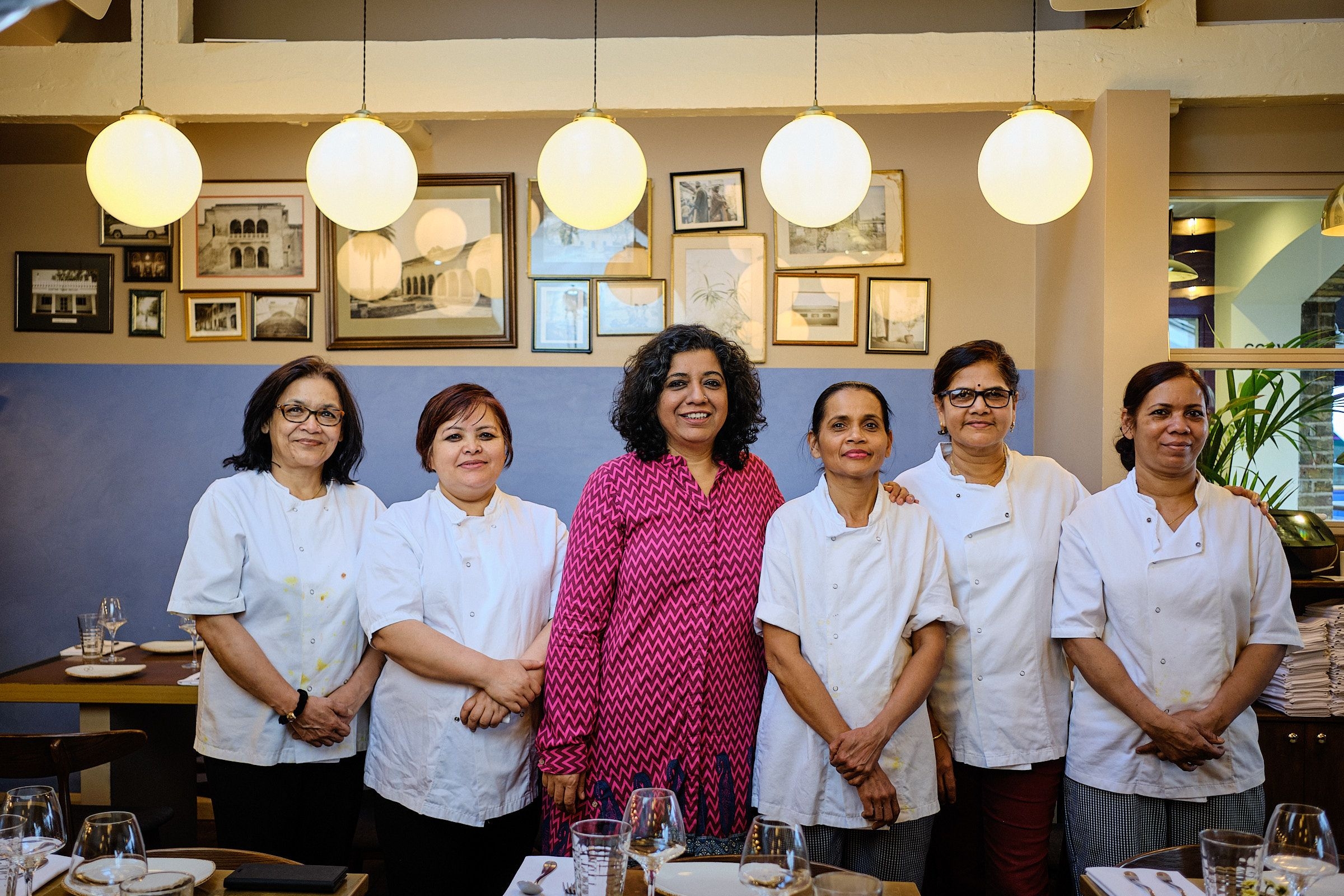 Asma Khan and her team at Darjeeling Express (Credit: Asma Khan)
Asma Khan and her team at Darjeeling Express (Credit: Asma Khan)
The fierceness with which Asma speaks on this subject is palpable, and it comes from the fact she was born as a second daughter in Kolkata, a birthright which traditionally means you’re deemed a burden on the family.
As she details on Chef’s Table, when she grew up, a boy’s birth was often met with fireworks, and sweets handed out door-to-door in celebration, whereas a girl’s – particularly a second daughter’s – was mourned like a death.
“There was a lot of pressure on my mother, herself one of five daughters, to have a boy because she’d already had a girl, and so when I was born I think there was disappointment,” she says. “But very soon after my birth, my mother made a huge effort to make me feel loved and valued.”
Asma knows all too well that many weren’t so lucky, and she makes no bones about the impact of being treated like you’re “lesser than” by society.
“One of the girls [in my kitchen]… the village wanted her to be thrown and killed because she was a second daughter. They lamented her birth, but she’s a star today, and she’s the lifeline of this restaurant,” she says.
“When you’re surrounded by people who think you’re not worth a lot, you internalise it. I know what this feels like, and that’s why I make sure my team knows that I stand on the shoulders of giants”.
READ MORE: Burger King defended by women’s charity after controversial IWD post
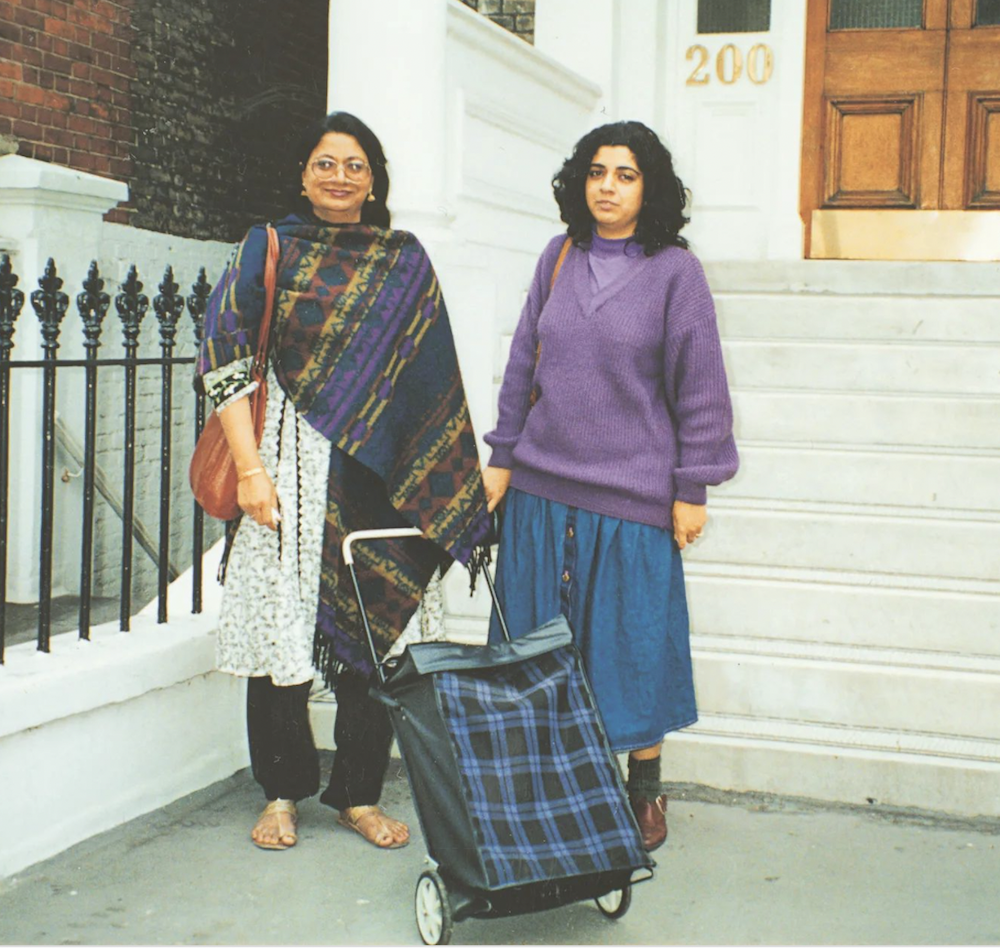 Asma Khan and her mother – or Ammu – when she moved to London (Credit: Asma Khan/ Instagram)
Asma Khan and her mother – or Ammu – when she moved to London (Credit: Asma Khan/ Instagram)
Such admiration Asma has for her staff (many of whom have worked with her since day one, over 12 years ago) that she pays everybody, including herself, the same – ensuring her restaurant remains an environment where prestige, hierarchy and ego are left firmly at the door.
“Too often, in restaurants, the entire credit is given to the male head chef, yet the truth is, every plate that lands on a table, at least five people have touched, and the person who washes the plate will wash it twice,” she says.
“Where is the credit to those people? How much does it take for me, as an owner, to acknowledge that I haven’t got here on my own?”
As the only Indian restaurant in the UK with an all female kitchen, Asma is no doubt a pioneer when it comes to giving women the opportunity to thrive within the world of hospitality, but across the industry, she’s not alone in pushing for change.
One shining example is Luminary Bakery, a Hackney social enterprise which has been helping female victims of social and economic disadvantage and gender based violence since 2013.
CEO, Alice Williams, started the organisation after working with homeless women in East London, and noticing the huge potential that was often going to waste.
“It was clear that by offering them work in a bakery we could give them skills, confidence and the support they needed to overcome past trauma and start on a new path in life,” she says. “Together with a small team we started baking in a local church and sold the products to the local community. This was where the idea for Luminary started.”
 Alice runs Luminary Bakery in Hackney (Credit: Luminary Bakery)
Alice runs Luminary Bakery in Hackney (Credit: Luminary Bakery)
Today, Luminary up-skills an incredible 56 women each year, many of whom have gone on to pursue careers in food. But even those who don’t gain something huge from the experience.
“We have a nurturing environment where people aren’t terrified of failing, they are equipped & empowered to grow,” says Alice. “Our bakeries are full of hardworking women who encourage each other and are able to have a laugh as they work.
“Baking is special, and it connects people in a way that is difficult to describe. [It] can raise hope in people who had forgotten their own potential, their power.”
Meanwhile, Ladies of Restaurants has also done incredible work – a collective which aims to use positive action to address the gender pay-gap in the hospitality industry.
Set up by Natalia Ribbe, a restaurant consultant and owner, who has worked as front of house across New York and London, the organisation has provided a place for women to address the biases they face, to learn, and also just to network.
“I think there is still conversation around why more women and non-binary individuals don’t have a more prominent seat at the table,” she says.
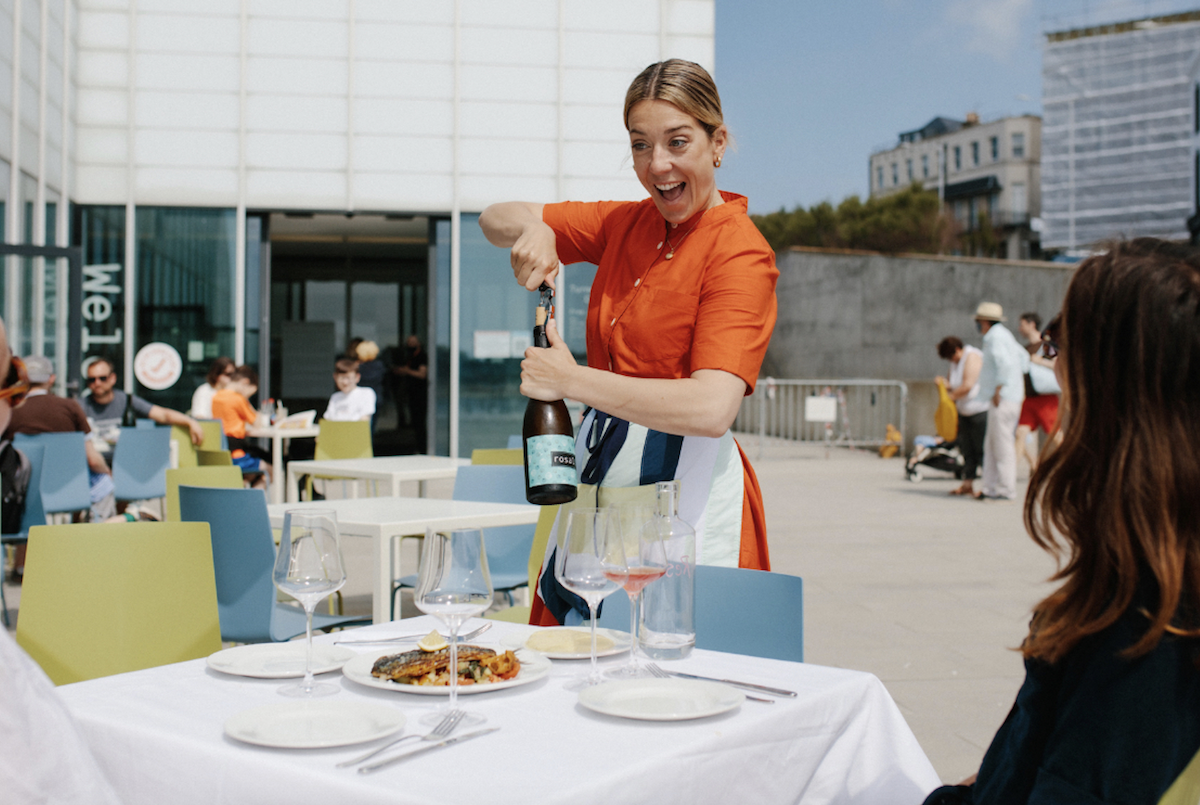 Natalia Ribbe founded Ladies Of Restaurants (Credit: Natalia Ribbe)
Natalia Ribbe founded Ladies Of Restaurants (Credit: Natalia Ribbe)
“It’s a systemic issue that will take another several years to unravel, and that starts with the patriarchal society we still have to exist in.
“Over the last seven or so years we have brought women together across the country and the globe, talking about their issues and helping them work through problems both in and out of the work space.
“We hosted workshops, networking events, educational seminars, dinner parties – the lot! We even made it to Finland, where the same issues we face in the UK plague the women [there].”
Whilst the organisation is taking a hiatus at the moment ahead of a rebrand later this year, Natalia says the work is far from over.
“I think we have a long way to go to create a fair and equal society overall, and I am just doing my best to be a part of that shift”.
There’s no doubt Natalia, Alice, Asma and others like them are making a real impact when it comes to ensuring that what was once a man’s world is heading towards becoming a more level playing field, and slowly, times are changing. According to the Office of National Statistics, the number of female chefs in the UK has risen by a third since 2016, and one in four are now female.
However, Asma says, in order to further this impact, there’s also an onus on society to stop hailing this image of angry male chefs, and call out such behaviour when we see it.
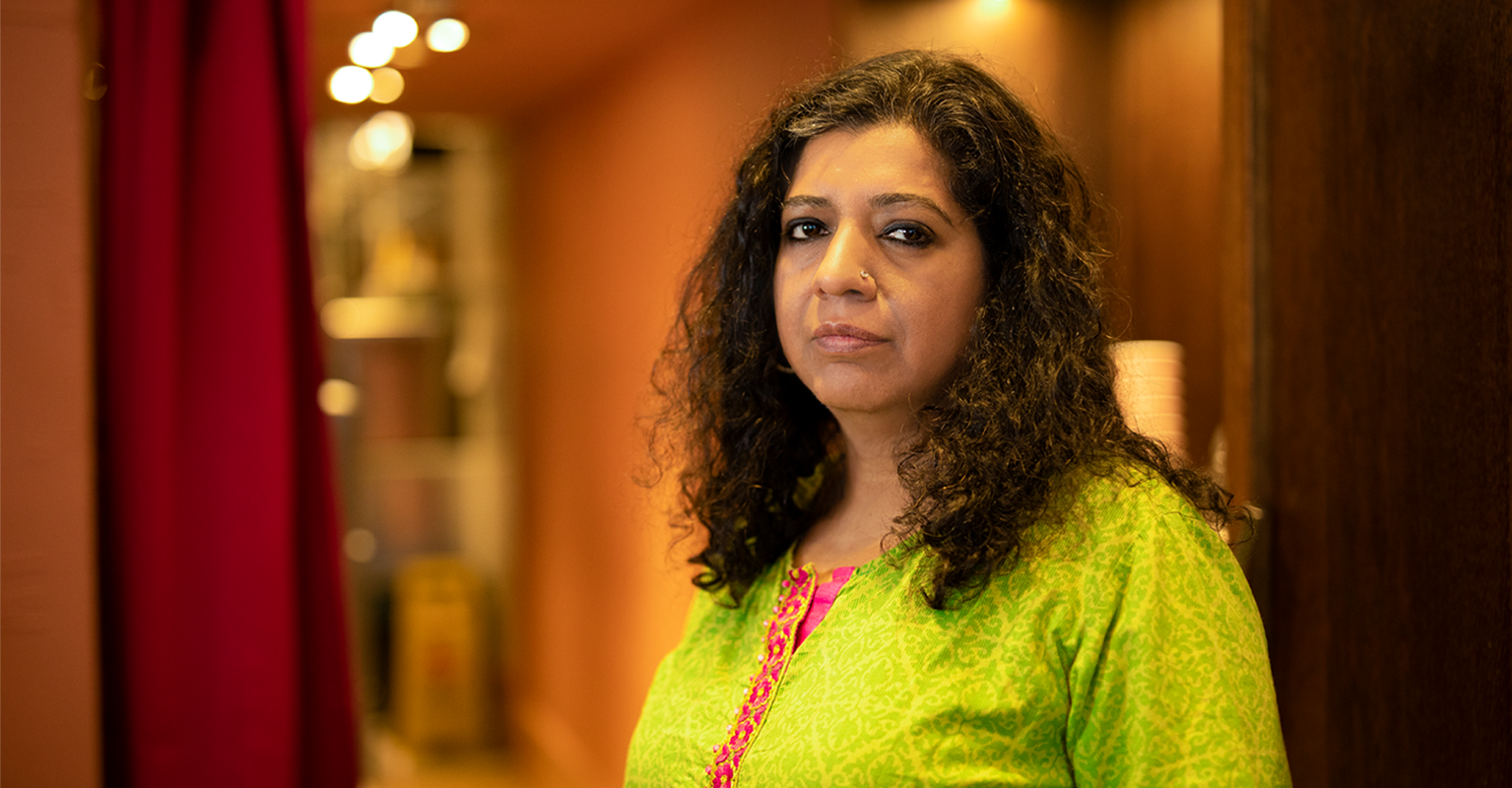 Asma is calling on everyone in the industry – men and women – to take a stand (Credit: Twisted)
Asma is calling on everyone in the industry – men and women – to take a stand (Credit: Twisted)
“A huge problem in the industry is that powerful [men and women] who have Michelin stars – those who are celebrated and adulated by everybody, and who are our television screens – remain silent about abuse, bullying, misogyny, and sexual harassment,” she says.
“This is why I speak out, and I’m unafraid, because I don’t want to eat from a place that has come from a toxic, abusive kitchen. That is not a dish to celebrate, it’s a dish of shame.”
What can restaurants take away from Darjeeling Express?
“I think all kitchens can just learn to be more decent,” she says. “To empower others, you don’t need to be famous, or do something great, you just need to be human.
“And if you can’t handle stress without getting angry, you need to get out of the kitchen and go visit a yoga retreat, because there are plenty of women who can.
“It’s not that hard, and it’s only bloody food”.
Asma Khan’s cookbook, Ammu, is a tribute to her mother, and her unwavering support despite all the stigma thrown her way. It’s available to purchase on March 17th.



